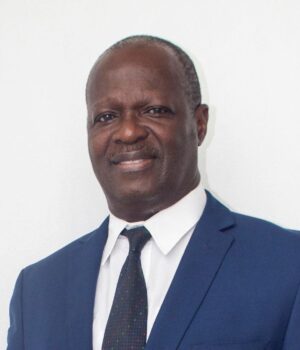A heated debate at the 5th CHINET AviaCargo Conference has brought to light an urgent aviation gap: the need to insure Nigerian airports.
Managing Director of Landover Company, Captain Edward Boyo, challenged regulators to enforce airport liability coverage.
He stressed that airports play direct roles in accidents and should not remain exempt. This was part of the conversation thrown up at the event held at the Eko Hotel and Suites.
Boyo emphasised Group Captain John Ojikutu’s earlier contributions on the removal of airport insurance previously covered in Part 18 regulations.
He warned that this omission was counterproductive. To him, it is important to insure Nigerian airports to address recurring safety failures.
Insure Nigerian Airports – Boyo Pushes Hard
Addressing the insurance regulator, Boyo was emphatic:
“Mr. Regulator, you have to ensure that all airports in Nigeria take up insurance. A lot of jet aircraft are destroyed by airport inefficiencies and infrastructure. Many accidents that happen at airports are the direct responsibility of the airport.”
He added that while airlines, passengers, and luggage remain insured, airports, often government-owned, escape scrutiny. “Because airports are traditionally owned by governments, you find their power shielding them. We talk about airline insurance, passengers’ insurance, luggage insurance. What about the principal causative factor of airport accidents?”
Boyo listed recurring hazards: poor runway hygiene, weak de-rubberization, and inadequate wildlife control. These lapses, he argued, directly compromise safety and expose airlines to risks. His conclusion was clear: the best way to fix the imbalance is to insure Nigerian airports.
NAICOM Regulator Responds
Deputy Commissioner of the National Insurance Commission (NAICOM), Dr. Usman Jankara, acknowledged Boyo’s concerns. He agreed that to insure Nigerian airports was the ideal thing and needed no debate. However, he admitted regulators had been limited by weak legal frameworks in the past.
“The underlying rationale of compulsory insurance is to prevent innocent members of the public from being harmed without compensation,” Jankara explained.
He revealed that although insurance schemes had existed, NAICOM lacked enforcement authority. “Before now, if you needed to act, you had to depend on law enforcement agencies or court action. It was slow and yielded little result.”
Reform Act Empowers Enforcement
Jankara, however, noted a significant shift with the Nigerian Insurance Industry Reform Act (NIRA 2025), signed into law by President Bola Tinubu.
“The Act now empowers NAICOM to enforce compulsory insurances. That is the major difference from before,” he said. “What we need to do now is engage authorities responsible for airports, like FAAN, to agree on what will be done.”
He added that while some airport-related insurance frameworks exist, enforcement had been inconsistent. The new law now provides NAICOM the power to drive compliance, insure Nigerian airports, and hold airports accountable.
Why Insure Nigerian Airports?
The Boyo–Jankara exchange sharpened industry focus on a neglected aspect of aviation safety: the liabilities of airports themselves.
Airlines have long carried the bulk of risk, even when accidents stemmed from airport inefficiencies. Observers at the conference agreed that Boyo’s comments highlighted a structural imbalance.
Unlike international practice, Nigeria had excluded airports from compulsory insurance.
If NAICOM enforces the new Act, airports under FAAN and state control may soon be compelled to take insurance policies that cover infrastructure, negligence, and operational risks.
That step will finally answer the call to insure Nigerian airports in line with global aviation standards.
Looking Forward
The discussion signals a growing consensus: aviation insurance reform must extend beyond airlines to the entire operational chain. For stakeholders, the stakes are significant. Insurance cushions financial risks but also pushes airports to raise safety standards.
Boyo’s challenge and Jankara’s concession may shape future regulatory engagements between NAICOM, FAAN, and airlines. As the CHINET AviaCargo Conference revealed, the next frontier is clear: Nigeria must insure Nigerian airports to strengthen safety, accountability, and passenger confidence.























